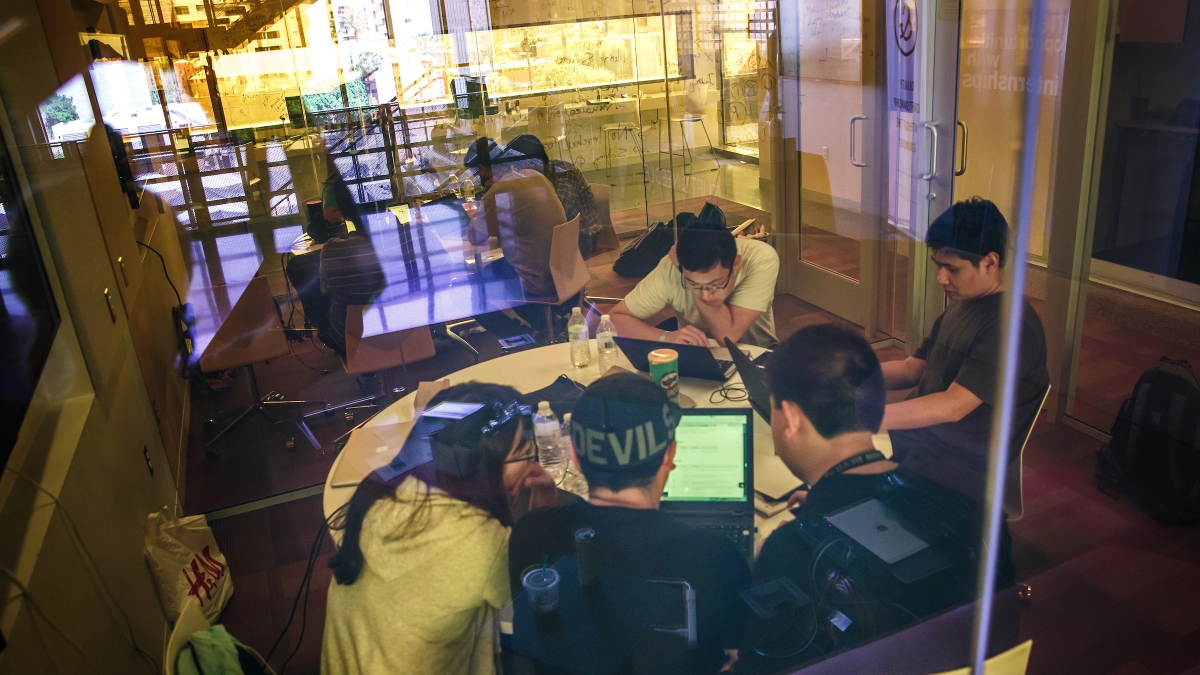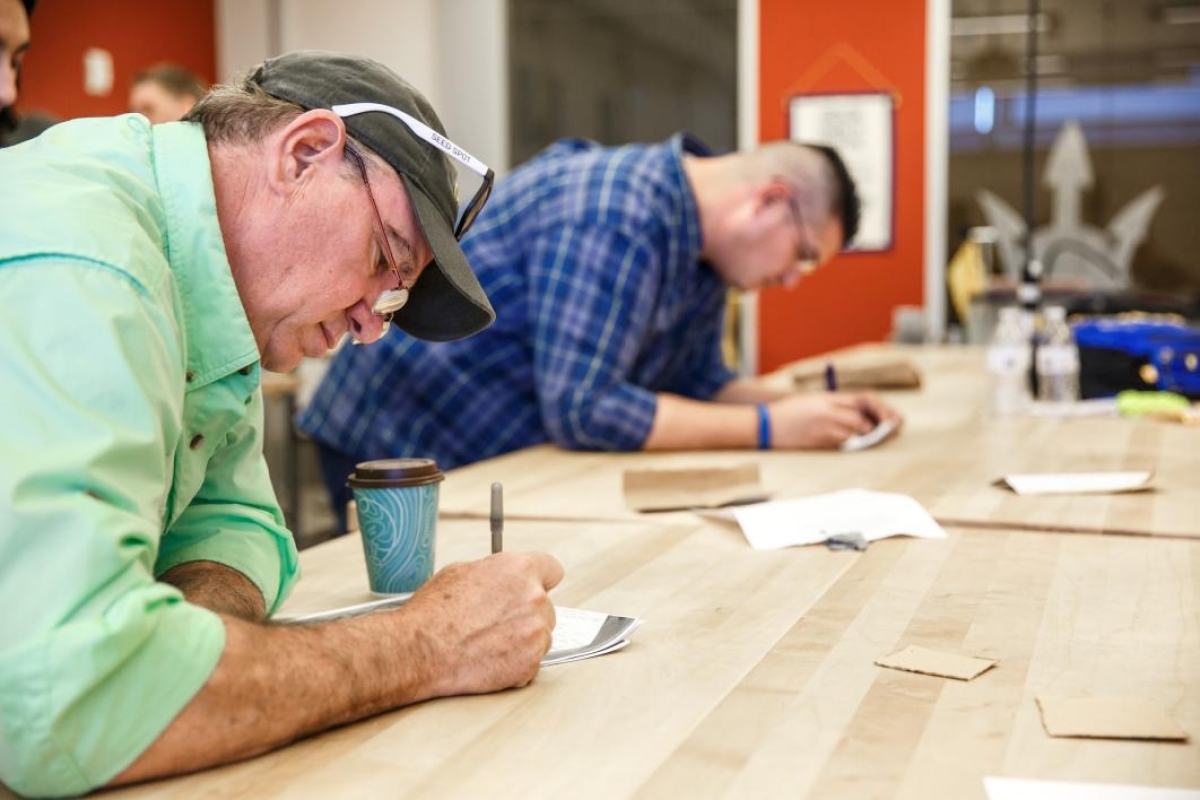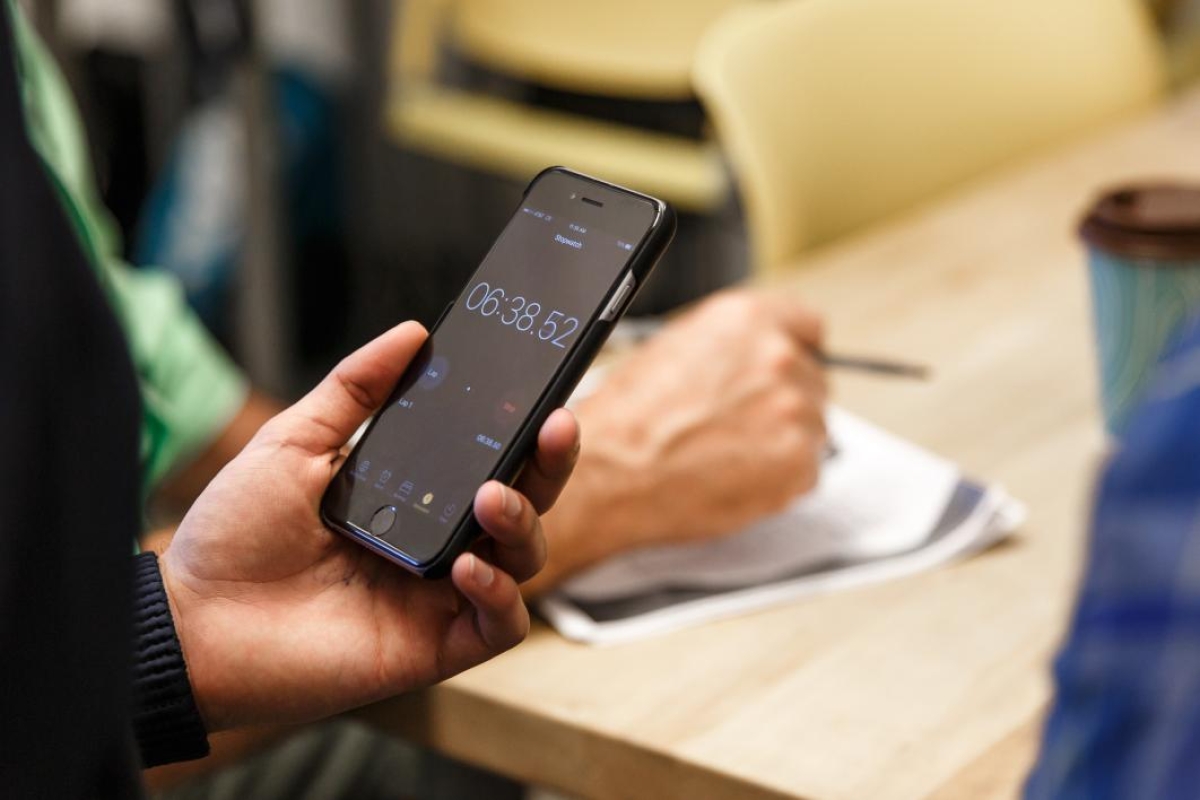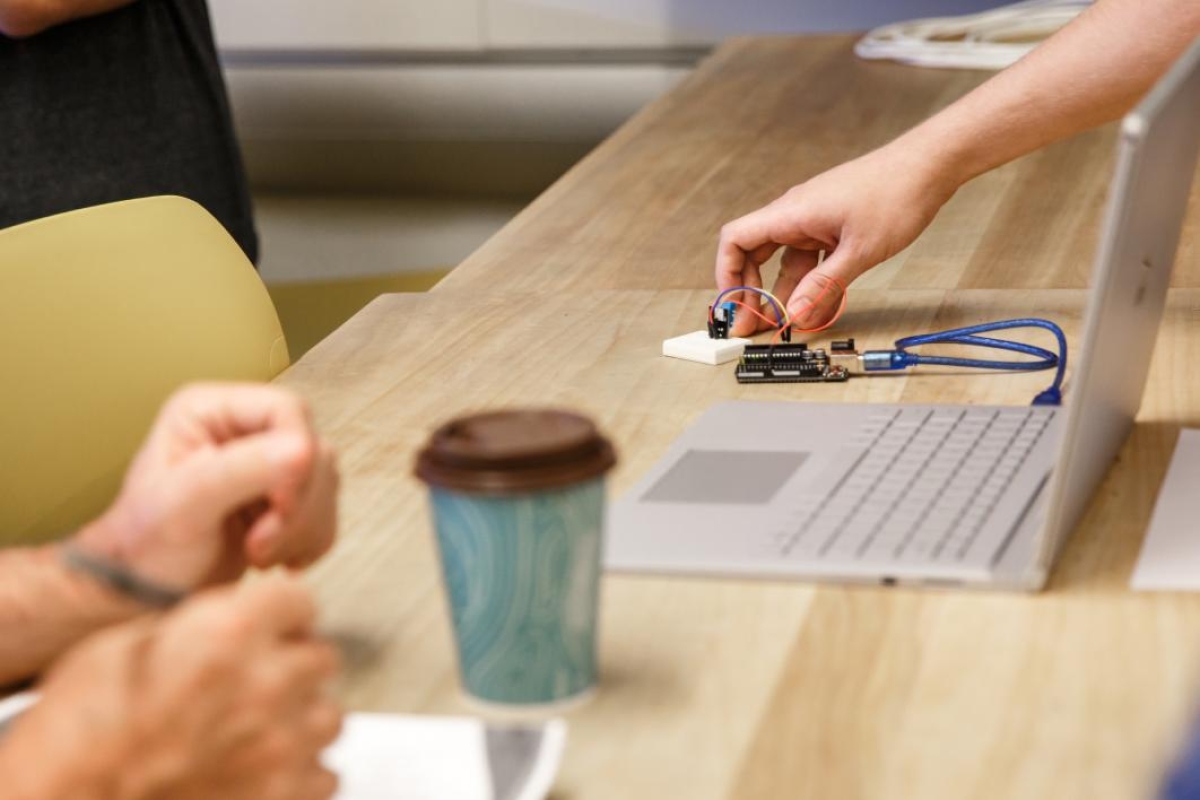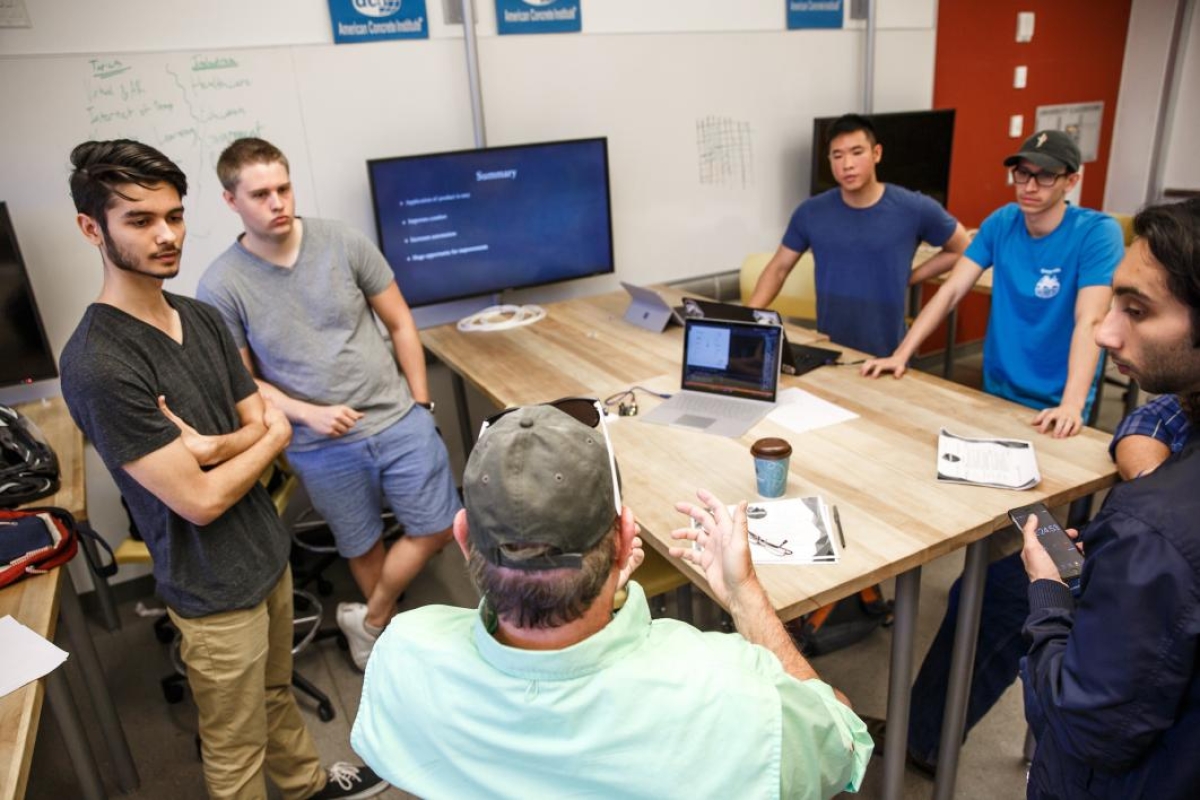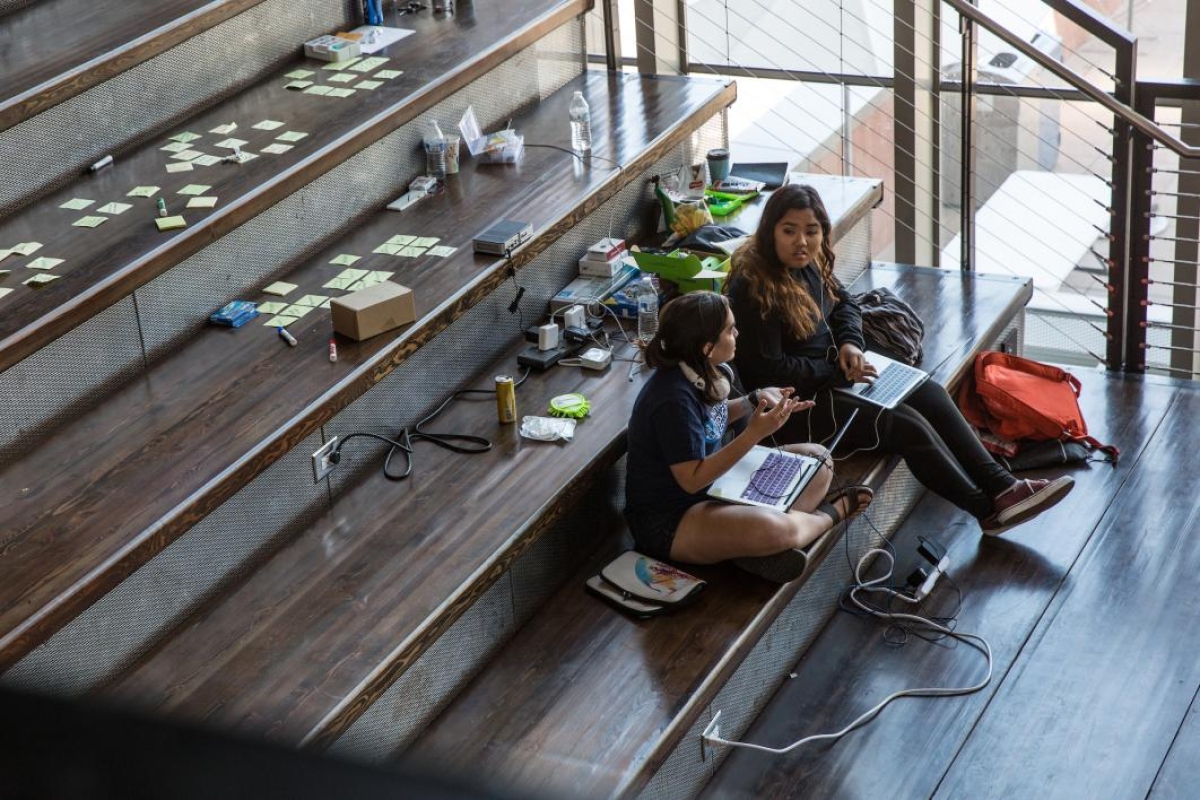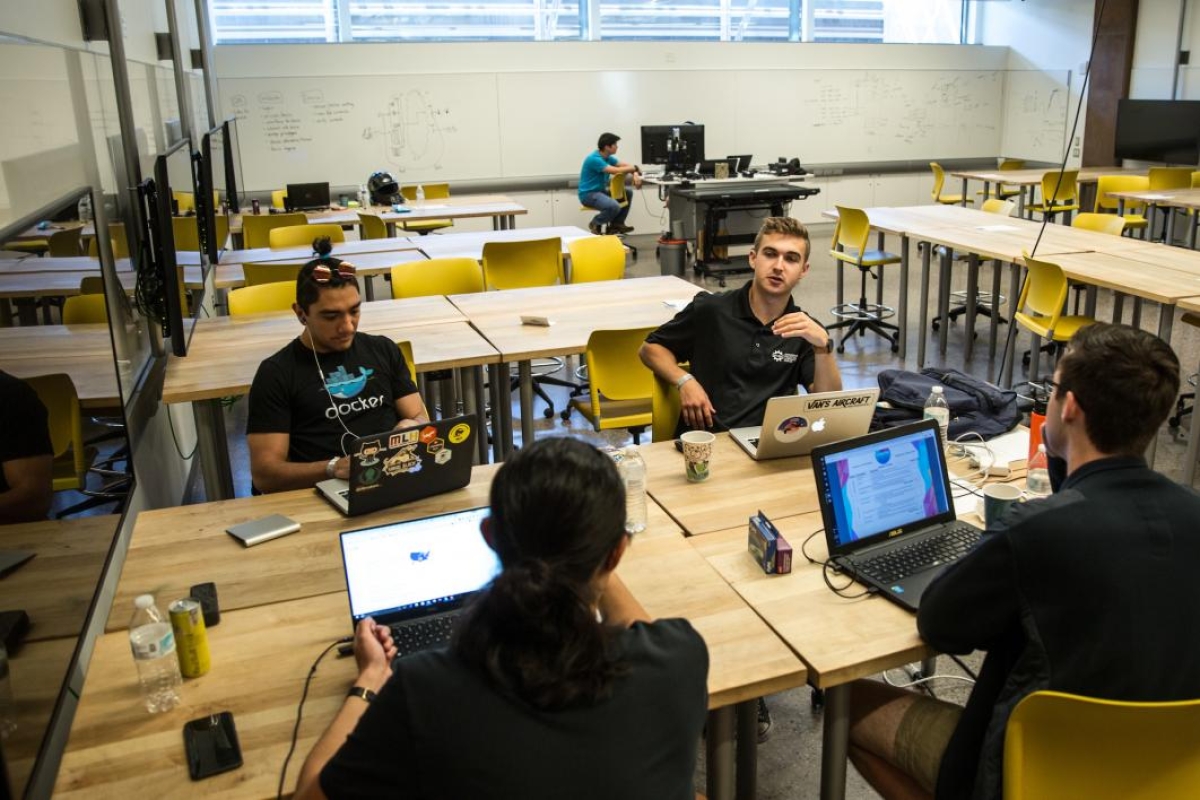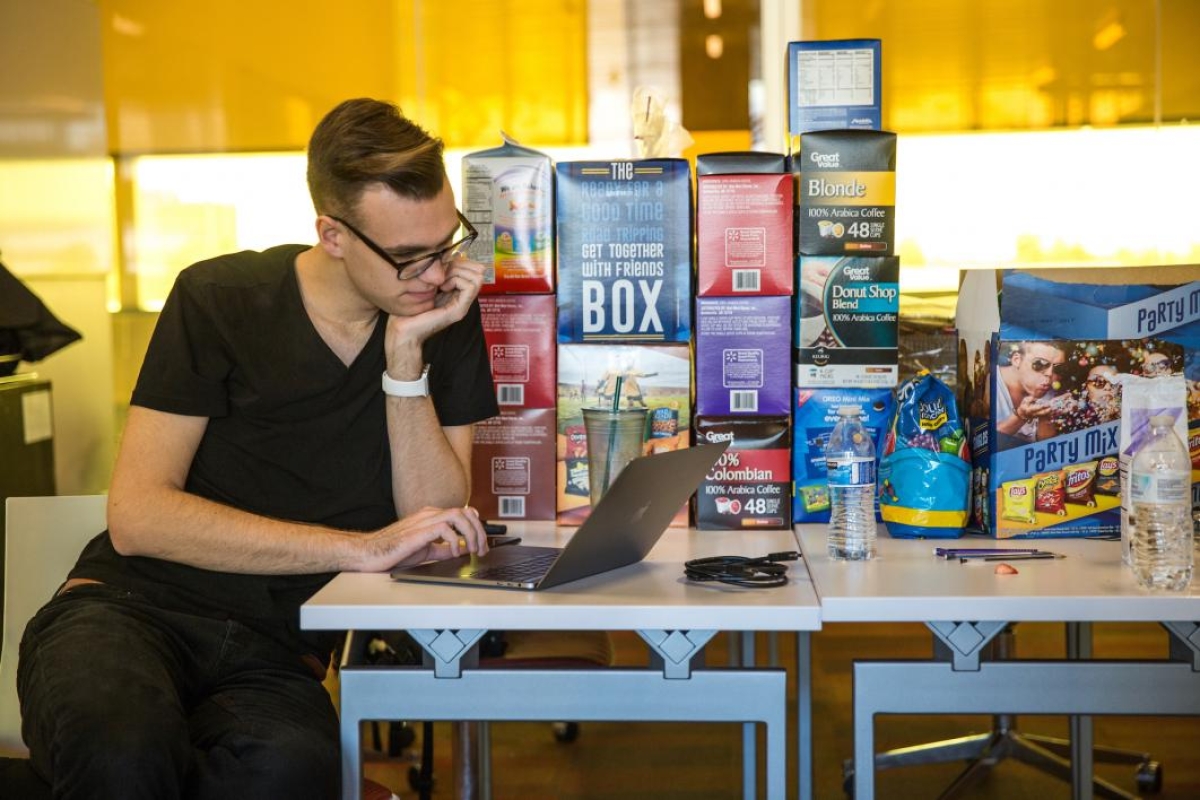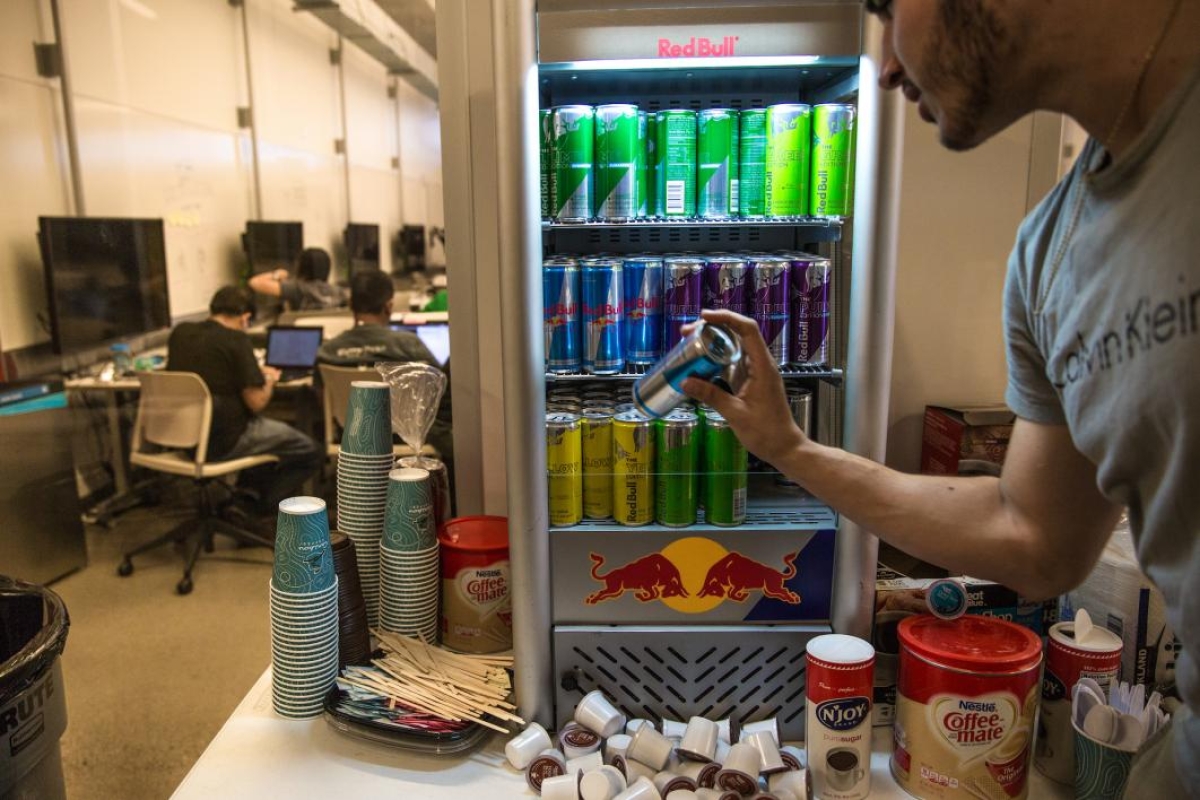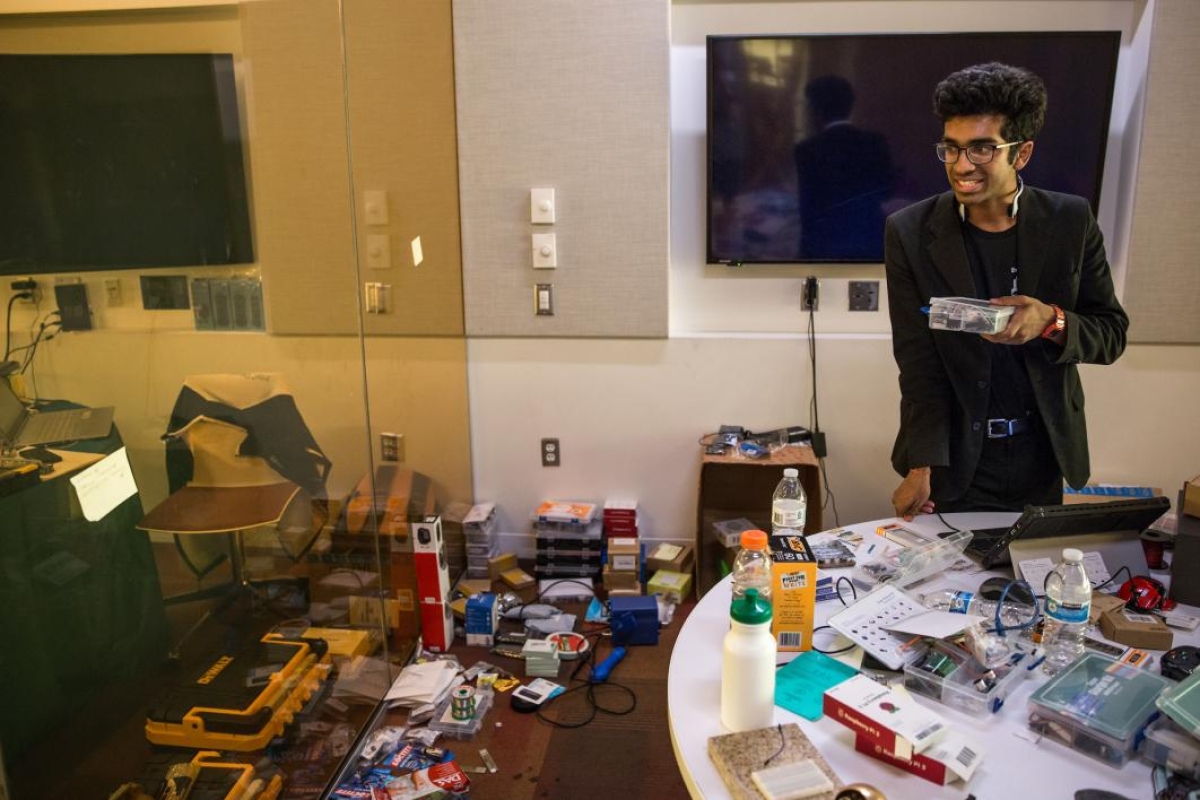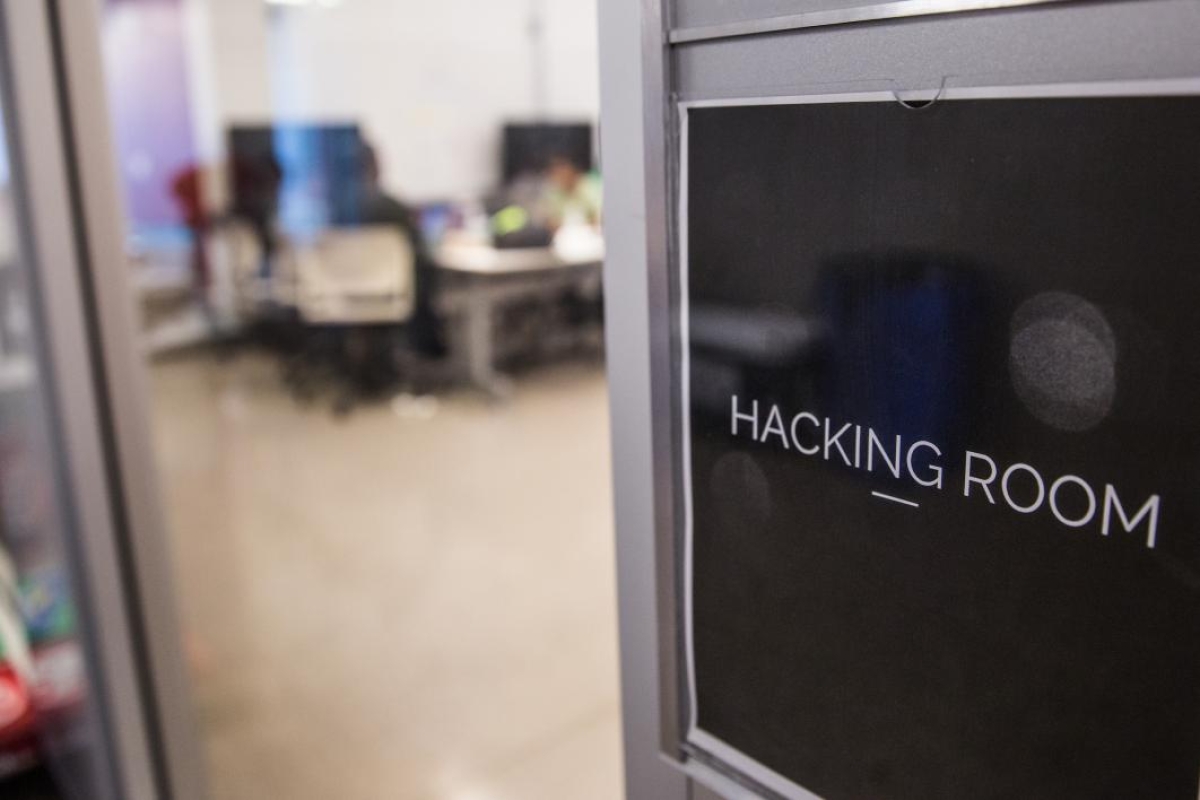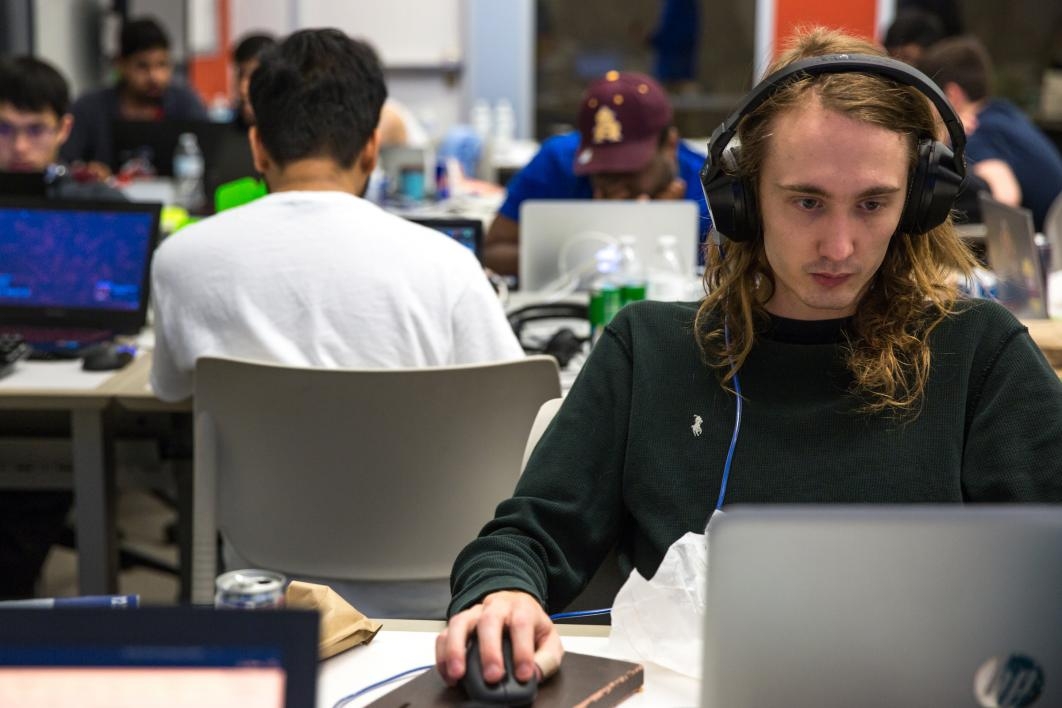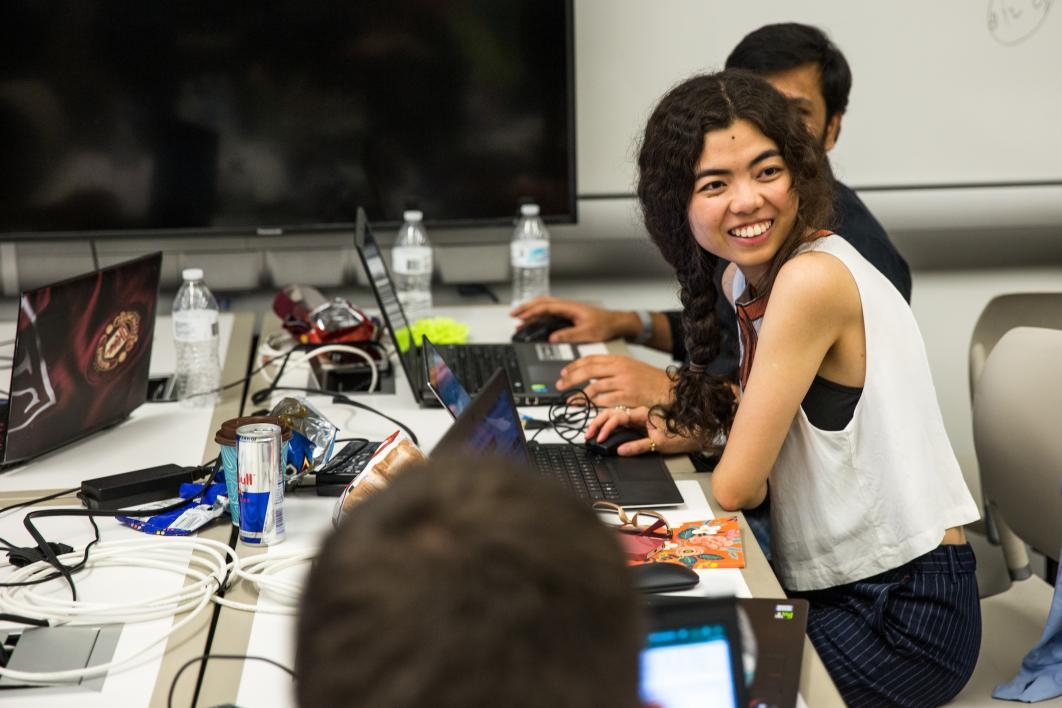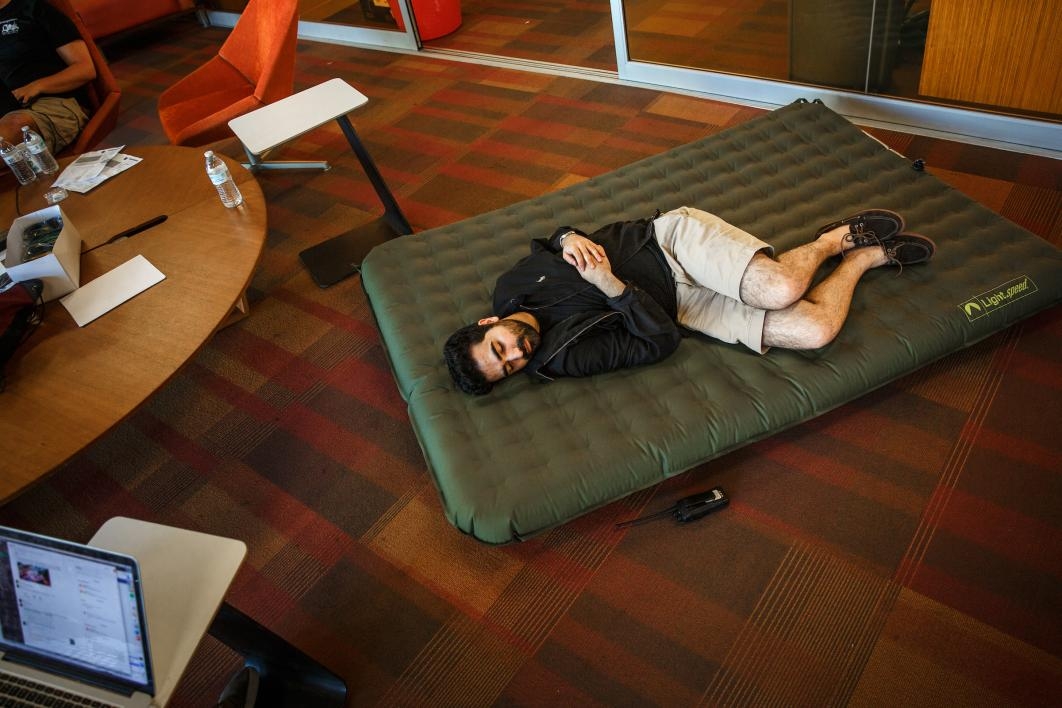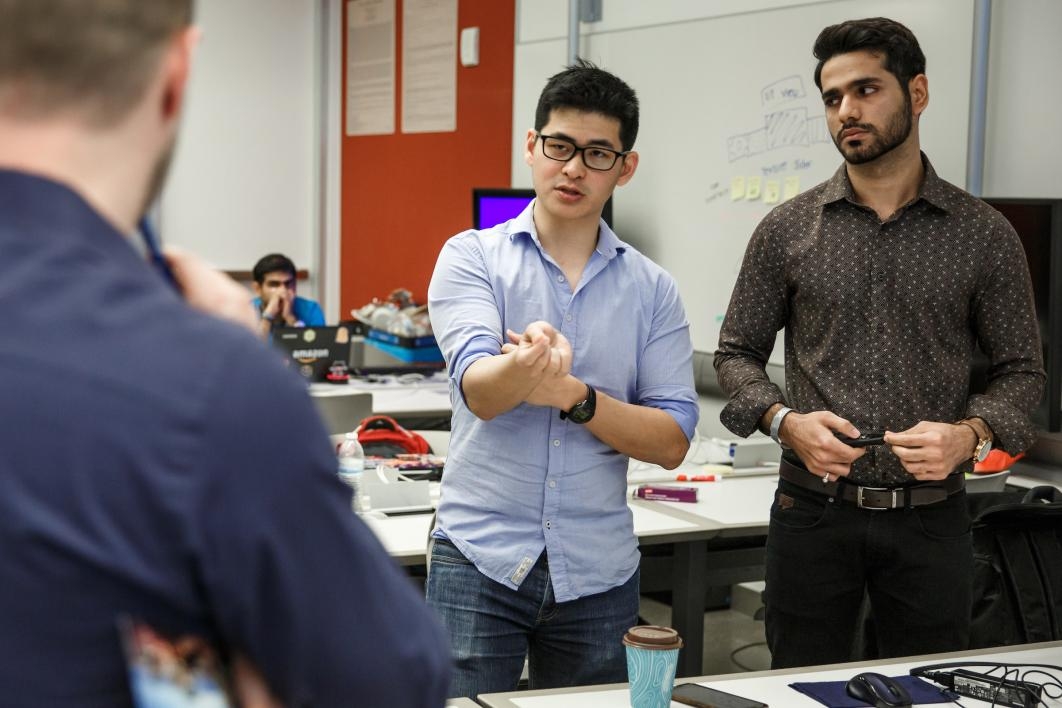Update: After a frenzied weekend, the team of SungHo Hong, Kaiwen Zheng, Yilong Chen, Yaohan Ding and Jiacho Chen took home the EmergenTech: Hack ASU competition's first prize, thanks to their submission, Project Giraffe. Project Giraffe allows users to create a remote-control car that is capable of changing the way people tour houses.
The second- and third-place finishers created a companion for elderly people and a way to find empty parking spots on campus, respectively. Click the links to read more about Wilson Monitoring and FindParking.
See scenes from the weekend hackathon below, and read the full preview story below the gallery.
It’s no secret that Arizona State University is the top school in the country for innovation.
Some of that creativity and ingenuity will be on display this weekend, when ASU students of all majors will take part in EmergenTech: Hack ASU. Taking place at the College Avenue Commons, the hackathon event and pitch competition will span 36 hours from March 24 to 26.
“This will be the first year of the event, with the goal of scaling up each year until we become the largest university hackathon in the Southwest and entire country,” said Mark Naufel, the director of Strategic Projects for ASU’s Knowledge Enterprise Development office. “I am excited to see a group of talented, energetic students come together for 36 hours straight to ideate and develop innovative solutions that may have a chance of impacting society.”
Throughout those 36 hours, participants will form teams and choose an emerging technology to develop both a prototype and business concept. The event will then finish with a pitch competition in which the competitors are judged by a panel in front of a live audience.
Sethuraman Panchanathan, executive vice president of Knowledge Enterprise Development, will be providing welcoming remarks at the event. He said that the team competitions are one of the things he’s looking forward to most this weekend.
“What could be better than bringing together students from various disciplines to apply their creativity and critical thinking skills?” Panchanathan said. “They will build solutions that may revolutionize public and private industries.”
There have been other similar events held on campus through school clubs, specific departments and outside groups, but this is ASU’s first-ever, university-wide edition.
The winning team at Hack ASU will receive $1,000 and a new mattress from Tuft & Needle for each team member. The other teams that finish in the top three will also be awarded monetary prizes.
With such a large-scale event taking place, the hackathon will rely on a number of student organizers to help make sure everything runs smoothly. One of those students is junior Chelsea Border, who will be working to expand the entrepreneurial side of the participants.
“By encouraging business, design and engineering majors to participate, we are aiming to approach the hackathon with a sense of innovation and creativity,” Border said. “One of the ways we establish this is by developing the hybrid hackathon/pitch competition framework, which requires business and design elements to be addressed in final projects. Our hope is that by the end of the event, each student will have learned something new outside of their usual disciplines.”
Whether it's the opportunity to learn at the event, gain new knowledge from their peers or take home one of the top prizes, there are plenty of reasons for students to participate in this inaugual hackathon.
"Seeing how our participants can learn from one another is what excites me most," Border said. "Our university has such a bright, talented pool of students, and the fact some of them are willing to sacrifice their time and energy to join us for a whole weekend shows our community’s dedication to innovation."
Top photo: The hackathon team HackSunDevils works on their project in a student club room of the College Avenue Commons building on the second day of the EmergenTech Hackathon. The team, composed of Chinese international students, worked on developing a method to predict cultural popularity.
More Science and technology

Breakthrough copper alloy achieves unprecedented high-temperature performance
A team of researchers from Arizona State University, the U.S. Army Research Laboratory, Lehigh University and Louisiana State University has developed a groundbreaking high-temperature copper alloy…

4 ASU researchers named senior members of the National Academy of Inventors
The National Academy of Inventors recently named four Arizona State University researchers as senior members to the prestigious organization.Professor Qiang Chen and associate professors Matthew…

Transforming Arizona’s highways for a smoother drive
Imagine you’re driving down a smooth stretch of road. Your tires have firm traction. There are no potholes you need to swerve to avoid. Your suspension feels responsive. You’re relaxed and focused on…


